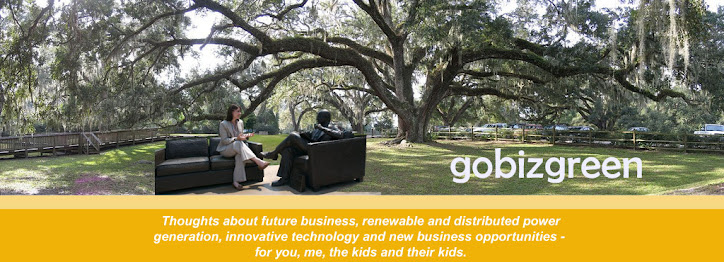It's easy to dismiss coal fired power production, and to wave a verbal wand to remove it entirely from the planet - but it's not going to happen soon. And "soon" is what we need, so all solutions, including interim and transitional ones, must be on the table.
While we are refining and exploring new ways to power the world, there also needs to be fast and effective solutions for the existing coal fired power industry. Australia has coal - we use it, export it, and profit from it. So it is heartening to see that we also are exploring ways to reduce emissions, and leading this field is the work done by the CO2CRC team in Melbourne who recently reported a breakthrough in CO2 capture.
In late November, I also attended a talk on Capturing Carbon Emissions by USYD Postdoctoral Research Fellow, Dr Deanna D'Alessandro, who is pioneering a method to "sponge" carbon emissions, and this, and other initiatives need to be fast tracked.
Another Australian company, MBD Energy are also working on Carbon Capture, using algae for production of algae oil and algae meal.
We may reach a point one day, when the techniques being developed by researchers in the non-trendy areas are essential to removing the excess greenhouse gases STILL being emitted. I am not a fan of putting all eggs in one basket, so we need to encourage our talented people into a variety of areas - wind, solar, geothermal, marine, cogeneration, energy storage, and also into bioengineering and solutions for managing what we continue to do, and have done with coal.
At the same time, I would advocate for a level playing field, where subsidies on sunset industries are replaced by research grants to help them transition, and provide the continuity of supply that is essential for our societies.
Tuesday 21 December 2010
Saturday 11 December 2010
Peak What?
 The concept of Peak Oil is now well into mainstream communities, or so I thought. Last night I found myself at a function seated next to a well educated, newly retired IT professional, who seemed to be totally unaware of Peak Oil and its implications.
The concept of Peak Oil is now well into mainstream communities, or so I thought. Last night I found myself at a function seated next to a well educated, newly retired IT professional, who seemed to be totally unaware of Peak Oil and its implications. We are in the era of information, and we debate about how much we are told. Certainly, everyone in the group knew about Wiki-Leaks! But not Peak Oil? The media loves sensation, what's happening day by day, and that fills the news.
So how do we focus the important stuff, like Peak Oil, and how can this topic attract attention and compete with the daily dramas?
The end of the era of low cost oil is changing our way of life. Individually and globally, we need to be aware of this massive social transformation and the impact on us all. Understanding Peak Oil is the first step in adapting, by developing new options for travel and transport, and by re -shaping our many other oil dependant areas such as food production. Important issues are on the horizon but they are not on the front page of most newspapers nor on the evening TV news.
It seems, that many of us are just like the eyes in the rock, locked into seeing only what is put in front of us - with no interest in what is the reality.
PIc by Mary /Sculptures by the Sea 2009 Sydney
Subscribe to:
Posts (Atom)


